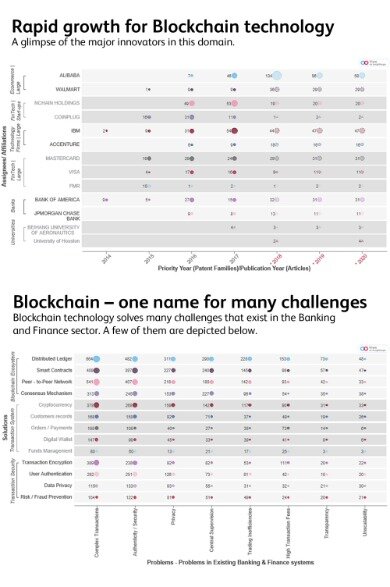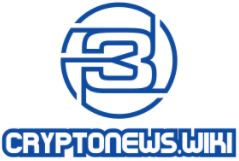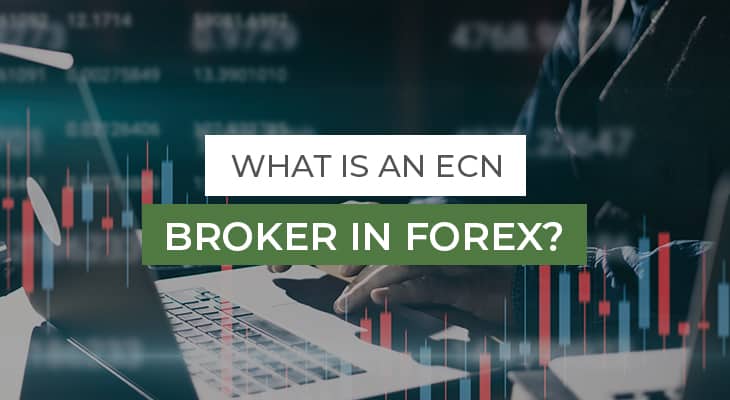Content
While 2020 being great year for investments in cryptocurrencies, the downside is a firm rise in crypto frauds. Global crypto exchanges, have suffered high-profile hacks, whereas hacks on decentralized finance companies accounted for more than 20% of the total theft volume in 2020. We may see various types of cyber fraud, including fake crypto investment platforms, fake crypto wallet scams, new forms of malware targeting lesser-known cryptocurrencies and crypto-jacking. The total value of fulltime decentralised financial services witnessed an impressive growth and even surpassed USD 10 billion. Experts predict that 90% of blockchain projects will require replacement within a year. All comments and subsequent fixes will be logged openly such that you can easily see the provenance of each object in this dataset. If you have support queries, suggestions or corrections to the data, please file a new issue in our GitHub repository.
Initial Coin Offerings are increasingly coming under the spotlight of regulators. The U.S. SEC has already taken legal action against the sponsors of two ICOs. We take a look at regional regulatory responses to ICOs, and, with a focus on Hong Kong we consider the key issues of whether “coins” or “tokens” are regarded as securities, and the repercussions if they are. ICOs are an innovative way of raising capital, but their future success will depend on a coordinated and proportionate regulatory response. In further developments covering the regulation of initial coin offerings , the European Securities and Markets Authority is the latest body to issue a warning to investors of the high risks relating to token sales.
- An online publication that provides insights, news and visual informative pieces with topics ranging from world markets, investing opportunities, industry analysis and so much more.
- Amongst all the industries affected by the COVID-19 pandemic, the financial sector is one area that has been hit particularly hard.
- Smart contracts do not need a blockchain to work, but they do need an underlying trusted network or mechanism, which blockchains provide conveniently and efficiently.
- A small but rapidly growing number have even started to move blockchain solutions into production.
The country’s progressive approach is driven by national authorities like the Ministry of National Affairs and Communications and its aim to test a blockchain-based system to ease the way individuals can send documentation to the government electronically. This makes the landscape in the country even more hostile for start-ups and innovators.
Blockchain News, Articles & Case Studies
Instead of existing in one place, the ledger is continually updated and synchronised across multiple computers in a network. Therefore, any participant in the network with the proper authorisation can view the entire ledger – without relying on an intermediary or any one authority. Blockchain technology is facilitating the democratization of capital for startup companies. However, ICOs, the preferred model for start-up financing on the blockchain, sits on the precipice. Despite this minor setback, blockchain-based start-up financing is making a comeback crypto-exchanges taken on more responsibility in ensuring only authentic projects are allowed into the market.
Blockchain, cryptocurrency and wider distributed ledger technologies are emerging as game-changers in every sector of society and industry. Social impact projects, fintech initiatives, supply chain and provenance systems, data management, and disintermediation of processes are being developed on a variety of platforms across the globe. The World Economic Forum recommends a multi-stakeholder approach to the stewardship of blockchain and cryptocurrencies in a new report. WEF says that blockchain, or distributed ledger technology, could soon give rise to a new era of the Internet even more disruptive and transformative than the current one. It sees the key to enabling this transition being the formation of a multi-stakeholder consensus around how the technology functions, its current and potential applications and how to create the regulatory, cultural and organisational conditions for it to succeed.

The High Court has granted a freezing order over GBP1.5million worth of Bitcoin and Ethereum cryptocurrency against a trading platform and its directors, in only the second known example of the court treating cryptocurrency as property. Just before Christmas we wrote about the decision in Vorotyntseva v Money-4 Limited, which was thought to be the second example of the English courts ordering a freezing order over cryptocurrency . The advantage of one single database is that it holds all the transactions, allowing to trace transactions, supporting documentation and reconcile accounting entries.
Latest Cryptocurrency & Blockchain News
On October 14, 2020, the Global Blockchain Business Council and the World Economic Forum released the 2020 Global Standards Mapping Initiative , the first comprehensive effort to assess and map global blockchain standards. The GSMI synthesizes key blockchain data and trends, and provides action-oriented guidance for public- and private-sector stakeholders. In this webinar, Ben Taylor, Partner, IT Advisory at EY, explains how Blockchain technology has the potential to streamline and accelerate business processes, increase cyber security and reduce or eliminate the roles of trusted intermediaries in industry after industry. The main reason is that most people now understand the broad concepts of blockchain technology. They know it is complex, life-changing, disruptive, revolutionary, and that you could have become super rich if you had bought the right cryptocurrency five years ago . Built on the Ethereum platform, smart contracts offer one of the biggest perceived benefits of blockchain technology.
Blockchain development will gradually become less complex and expensive, regulatory frameworks will become clearer and standards will be introduced, prompting many more companies to take the plunge rather than sitting on the sidelines. Meaning, those businesses that do actually have viable blockchain solutions have to find ways toeffectively navigate this noisy landscapeto make sure their solution gets the attention it deserves. ConsenSys, one of the largest and fastest growing blockchain companies in the world – approached us with the challenge of building its presence in Europe.
Hyperledger, for example, is an open source collaborative effort hosted by the Linux Foundation to advance cross-industry blockchain technologies that offer enterprise-grade privacy and security. The above use cases show how the technology has begun to pique the interest of all kinds of media – some being more unusual than others.
Blockchain technology is very likely to make the most transformative and dramatic changes in the way businesses function, during the coming years. Many industries are therefore intensively looking at blockchain as a helpful tool to become all the more digital.
A smart contract is a set of promises, agreed between parties and encoded in software, which, when criteria are met, are performed automatically. Smart contracts were written about in the 1990s by Nick Szabo, and have received renewed interest recently as a result of the “blockchain revolution” stemming from the technology underlying Bitcoin. Smart contracts do not need a blockchain to work, but they do need an underlying trusted network or mechanism, which blockchains provide conveniently and efficiently. We look at possible uses to which smart contracts could be put in the finance context and explore and look at how the law might view smart contracts. On 1 August, the Monetary Authority of Singapore issued a press released stating that the offer or issue of digital tokens in Singapore will be regulated by MAS if the digital tokens constitute products regulated under the Securities and Futures Act (Cap. 289) . MAS’ clarification comes in the wake of a recent increase in the number of initial coin offerings in Singapore as a means of raising funds and after the SEC also offered regulatory guidance on the likely treatment of token sales.
Blockchain projects with clear benefits are expected to do that next year at an even faster pace. There has also been an uptick in the number of companies interested in participating in networks that specifically help to address some of the supply chain issues that the pandemic has put forward. A list of interesting tools, technologies and applications using blockchains and distributed ledgers. We offer initial advice for those creating a new cryptocurrency, adding blockchain or building a decentralised consensus systems for their operations. Distributed ledger technology could fundamentally change the financial sector, making it more efficient, resilient and reliable. This could address persistent challenges in the financial sector and change roles of financial sector stakeholders.
The UK Jurisdiction Taskforce carried out a consultation earlier this year to identify the key questions that needed to be answered about English law’s approach to cryptoassets and smart contracts. Following input from relevant stakeholders, including Allen & Overy, UKJT published its legal statement on the 18th November 2019.
Cryptocurrency & Blockchain
The embraced multi-dimensional approach to ease the DLT adoption, consisting of progressive oversight politics, incubation schemes and tax incentives has seen the niche boom and attract industry’s top talent and prominent start-ups. The Committee on Economic and Monetary Affairs has prepared a draft motion for a European Parliament Resolution on virtual currencies and distributed ledger technology . In our alert, we review the substance of the CEMA motion and offer some early recommendations for companies exploring opportunities in this area. The CEMA position clearly demonstrates that the EU legislator has a keen interest in the opportunities and risks associated with VCs and DLT. In this respect, it is encouraging to read that there is a call for “smart regulation” and a recognition that the regulation should also allow these new technologies to develop. The number of cryptocurrency and blockchain related patent applications being submitted and published in the U.S. has nearly doubled in 2017.
For Lesh, it’s about “creating an agreed-upon business process that works for everyone in the system as long as they’re willing to share their data”. In comparison, Breaker’s Adam Lesh was more interested in how blockchain can be used to manage rights and royalties for independent artists by registering every transaction to the blockchain. As a blockchain entertainment studio, Breaker is developing a media supply chain to empower independent artists – across film, TV, music, eBooks and podcasts – to own, control and monetize their content. Its offering runs on the Ethereum blockchain platform, using tokens and smart contracts to solve pain points for independent artists and consumers. Wilson also described how smart contracts (self-executing contracts with the terms of the agreement directly written into code that’s stored on a blockchain network), offer the potential to build rich features like secure key exchange and rights management.
what to make of cryptocurrencies and blockchains, as The Economist puts it, for example, is now arising more and more. Listen to the full podcast to hear more valuable marketing insights from Patrick and find out what it’s like to work at one of the world’s leading blockchain organisations.
However, although all the drawbacks, currently 9 out of the 10 biggest exchanges by market volume are all based in Asia. The adoption of DLT has the potential to further improve their performance and strengthen their position as world leaders. The blockchain market value in the country is estimated to grow exponentially in the next few years, starting from $17.8 million and reaching approximately $316.8 million by 2022. ThailandFor some, Thailand may come as a surprise contender for one of Asia’s top blockchain inno-vators. However, it was the second country, after Singapore, to issue a clear classification on ICOs, defining three types of tokens – investment tokens, utility tokens, and cryptocurren-cies. JapanEver since the government’s decision to acknowledge cryptocurrencies as real money in 2016, Japan has made a claim to become one of Asia’s leading innovators in the blockchain field.
Not only did Bitcoin have a very good year (up over 90%), but investors continued to fund companies building crypto infrastructure. Incumbent financial institutions also looked to expand their service offerings in areas such as custody and trading.
Tokenisation — the representation of real or virtual assets on a blockchain — is spreading to raw materials, finished goods, income-producing securities, membership rights and more. In PwC’s 2018 survey of 600 executives from 15 territories, 84% say their organisations have at least some involvement with blockchain technology. Blockchain is still a new technology compared to the overall state of the financial market, and it will likely be a while until it’s properly stabilized its position. As we said above, the important thing right now is to pay attention to how this tech evolves and the stages it goes through.

We had such an engaged audience and covered so much ground that we wanted to share some of the key points more broadly. We discuss what constitutes an ICO, the current regulatory climate, untapping an ICO’s potential, the legal considerations involved, and more. At the end of 2017 Allen & Overy (A&O) assisted Nivaura with the issue of the world’s first cryptocurrency denominated, blockchain settled bond for Luxdeco, an online retailer of luxury furniture. The action plan covers a wide range of topics, including a proposal for an EU Regulation on crowd-funding, setting up an EU Fintech Lab and continued monitoring of developments in crypto-assets and Initial Coin Offerings . The European Commission published an action plan for financial technology on 18 March 2018 as part of the EU’s work to complete the Capital Markets Union. Cryptocurrency exchanges and the cryptocurrency trading market have generally been unregulated so far in Poland. Members of Washington, D.C.’s Financial Services Regulatory and Litigation and Investigations groups recently authored an article on U.S. and global cryptocurrency anti-money laundering risk considerations.
You don’t have to be an industry expert to know that blockchain is currently one of the hottest technologies around. Despite still being in its relevant infancy, it is generating huge investment in all manner of industries and has the potential to be hugely transformative to future business operations. This clamour to establish share of voice in the space has primarily been driven by the massive hype around bitcoin and the possibilities of adjacent market opportunities. Blockchain has quickly become one of the most widely discussed technologies across industries, with the potential to disrupt business models and transform digital transactions. So, if you’re wondering why the media and entertainment (M&E) industry should care about blockchain, you’ve come to the right place. With the early hype now over, every company or startup in the blockchain industry needs to show its relevance to a broader audience than just the B2B and tech community. In this blog, we share first-hand insights on how companies and startups should communicate in order to make blockchain technology an everlasting hit.

This means PR and marketing professionals have to start developing a communications strategy if they want to be able to cut through the noise and get ahead of the competition. With more and more business realising the vast potential of the technology beyond cryptocurrencies, the next era of blockchain is fast approaching. If you work as a marketer in a blockchain business, thinking about the next wave may sound a bit premature given that blockchain has only really become a mainstream topic in the last couple of years. Especially as many audiences still struggle to get to grips with the intricacies of the technology.
Just a few months after it declared intentions for a national digital currency, it an-nounced the “Project Inthanon”. Lead by the Bank of Thailand and 8 participating banks, the initiative aims at exploring the potential benefits of DLT to optimise the Thai financial mar-ket infrastructure. Today, Singapore is a leading cryptocurrency hub, competing with London for the crown. Ac-cording to blockchain entrepreneurs, the reason for this success is the government’s willing-ness to follow through its commitment to support the ecosystem in the country. In fact, Sin-gapore was first in Asia to issue a guide, defining digital token offerings and one of the most progressive countries, when it comes to providing flexible income tax treatment for virtual currencies.
Kate has access to growing network of experienced practitioners who can take projects forward for the right clients, and partners with CityWeb Consultantson large scale and blue-chip contracts. A new age of blockchain is certainly coming and businesses can’t afford to stand still if they want to capitalise on the industry’s imminent future growth.










